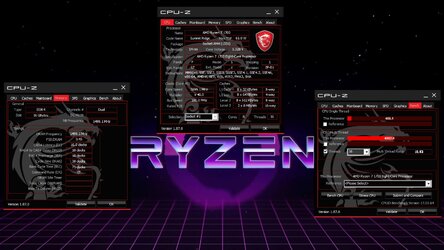Wow I can't believe this is still being argued. I'll take a crack at explaining this.
What we care about is energy released from the chip, correct? Heat and temperature are not the same. Sources:
http://coolcosmos.ipac.caltech.edu/cosmic_classroom/light_lessons/thermal/differ.html,
https://energyeducation.ca/encyclopedia/Heat_vs_temperature,
https://www.khanacademy.org/science/chemistry/thermodynamics-chemistry/internal-energy-sal/a/heat.
Temperature is a measurement of "average" energy. In other words, you could say amount of energy per silicon molecule. Heat is a measurement of the total energy release, in this case, from the CPU. What is important here is the physical size of each transistor. Think of them like switches. A light switch that is 5 feet tall is going to require (ignoring friction for the purposes of this thought experiment) substantially more energy to move than one that is 1 inch tall, because it is more massive. That's basic physics. The FX-9590 piledriver uses 32nm process while Zen uses 14nm process. In other words the "switches" in a Ryzen are less than half the size of the switches in an FX CPU. Of course there is a substantial degree of oversimplification applied, however this basically means that less than half of the energy is required flip one of these smaller switches, eg power a transistor.
Because the transistor for Ryzen has less mass (less physical size, assuming the silicon has equivalent physical properties, will have correspondingly less mass, and therefore fewer molecules of silicon.) a single transistor will produce less heat (total energy, in this case for the transistor) at the same temperature (average energy per silicon molecule), because there are fewer molecules of silicon producing heat. Roughly this will scale to the entire CPU, given both are 8 cores at the high end. In other words, a Ryzen CPU would have to be over 120 C to produce the same amount of energy (heat) as a FX is producing at 60C.
Now the other problem is that although there is less heat, there is also less surface area through which to distribute the heat that is generated. It makes it more challenging to get the energy (heat) out of the silicon and into the cooling solution. Because of this we are seeing higher temperatures (which is again, only the amount of heat per molecule of silicone, not the total amount of heat produced).
Welp after that probably some physicists and electrical engineers rolling over in their graves, but hopefully it help you understand why a component can be "hotter" (producing more heat) while being "cooler" (operating at a lower temperature). As you can see "hot" and "cold" are too ambiguous for technical discussions of physics. If you continue to use those terms in your arguments, it will be difficult to take the discussion any further due to the ambiguity of your assertions.


